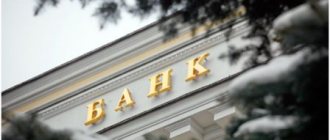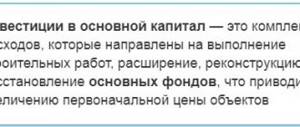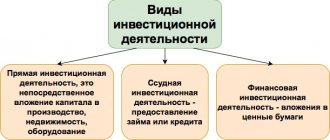Briefly about the law
The Federal Law on the securities market is the main regulatory document regulating the issue and quotation of securities in Russia. In addition, the law establishes all legal relations arising in the work of a prof. securities market participants.
The first edition of N39 Federal Law “On the Securities Market” was released in April 1996.
Since its first publication, the legislative act has undergone many changes, additions and amendments. Although the essential points and basic principles of standardization of the securities market remained the same. The law is quite voluminous and includes 6 main sections and 53 articles. Both Russian participants in exchange relations and non-residents of the Russian Federation fall under the regulation of the Federal Law.
Where can I see the current version?
A fairly old, but proven source, where the latest edition of any law (including the securities market) will always be posted, are the state publications “Collection of Legislation of the Russian Federation”, “Rossiyskaya Gazeta”, “Parliamentary Gazette”.
At the same time, modern technologies can greatly facilitate the search for any current legislation. Today, legal reference systems (LRS) are very popular.
If you have an Internet connection, using the ATP, you can find in seconds any current legislation with information about changes made and the upcoming adoption of amendments to the Federal Law on the securities market.
The largest legal bases in the Russian-language network are:
- official Internet portal of legal information (www.pravo.gov.ru);
- Consultant Plus (www.consultant.ru);
- Garant (www.garant.ru).
Using the link below, it is possible to familiarize yourself with the current version of Federal Law-39 “On the Republican Securities Market” (https://www.consultant.ru/document/cons_doc_LAW_10148/).
Latest changes in federal law
At the end of 2021, Federal Law 397 was adopted. This is a separate document that regulates the inclusion of adjustments in the law on the Central Bank market, regarding the section on self-regulatory organizations. Here we are talking mostly about the issue of investment consulting.
From December 21, 2021, investment advisers are now classified as professional participants in the exchange market. These are persons who are engaged in advising clients in the field of investing in securities, derivatives or any other exchange-traded financial instruments.
As the latest edition of the Federal Law on the securities market interprets, all programs through which information support for clients in the field of investment will be provided are subject to mandatory accreditation by the Bank of Russia. In addition, any consulting services in this area must be accompanied by the conclusion of an agreement that regulates the legal relations of the parties.
The end of 2021 was also marked by changes in the law “On the Securities Market” and related to the previous Federal Law No. 514 of December 26, 1995 “On Joint Stock Companies” on the issue of exchange-traded instruments.
I’ll tell you the most important things that have changed in this area.
General information
The Federal Law on Investments was adopted by the State Duma on July 15, 1998, and approved by the Federation Council on July 17, 1998. It was last modified on July 26, 2021. The Law on Investment Activities of the Russian Federation contains 6 chapters and 23 articles. This law regulates the processes and basic principles of investment activities. The law also regulates and controls guarantees of citizens’ rights to investment activities, capital investments, and regulates guarantees for the protection of property of investment objects.
Summary of Federal Law No. 39 on investment activities:
- The first chapter describes the general provisions of the law. A list of terms and concepts used in the law and their definitions is given. It is described how the law regulates legal relations arising during investment activities. Objects considered a capital investment are listed. The entities entitled to investment and capital investments are listed. Information on the methods of activity of foreign persons in the field of investment in the territory of the Russian Federation has been compiled;
- Chapter two formalizes the rights, obligations and relationships of the participants. The rights of persons involved in investing (investors) are described and listed in detail. The responsibilities of persons participating in any activity in the described area are described and listed in detail. Legal relations between categories of participants in activities in this area have been formalized. The economic side of investing, financing and budget is described. Information was compiled on the joint work of various government bodies and institutions, both self-government and constituent entities of Russia in the field of investments and investment activities;
- Chapter number three formalizes state control over all investment and investment activities. Methods, measures and processes of regulation and control over participants and activities are described. Measures and methods for monitoring and regulating capital investments in emergency situations are also described. The procedure by which the state makes decisions on investments and investments is described. The process, procedure and measures for assessing and verifying the effectiveness of state investments according to plans have been formalized;
- In city four, guarantees were issued for the rights and interests of citizens in the described area and the protection of their funds and property. A list of state guarantees for the rights and interests of citizens has been drawn up. Methods and measures to protect and maintain the safety of capital investments are described. Information on liability in cases of violations and illegal actions in this area has been issued. The reasons and measures to suspend or completely stop activities in the field of investment and investment are described;
- The fifth chapter describes the basic principles and nuances of control and regulation of the described area by self-government bodies of local territories. Information on processes, operations, ongoing activities, efficiency development and regulatory measures has been compiled. A list of guarantees of rights for citizens in the municipal region has been drawn up;
- The sixth document formalizes additional provisions and final acts, conditions and requirements of Federal Law 39.
You should be aware that this law does not apply to cases where persons invest money or property in banks or other financial institutions. Such cases are regulated accordingly by the laws on banks and credit organizations.
Where can you invest under Federal Law 39?
According to the investment law, a person has the right to invest funds or property in various areas and industries.
The most common areas for depositing funds are:
- Business, entrepreneurship. Investment activity in accordance with Federal Law 39 can take place with investments in small or medium-sized businesses. This industry is considered additional income and does not bring the largest, but nevertheless quite stable income. The minimum amount of funds for contribution to this area according to the law is 100,000 rubles;
- Real estate, purchase and sale. One of the most popular areas of investment for Russians is the purchase and sale of real estate. This area provides a stable, permanent income and allows many citizens to leave their main jobs;
- Bank deposits. Investments in a bank are also quite common among Russians. This industry is considered additional income and many Russian citizens invest funds immediately after receiving their basic salary. However, this area is not regulated by the described Federal Law 39;
- Mutual investment funds, mutual funds. Often Russian citizens choose the deposit industry in cooperation with mutual funds and mutual investment funds. Deposits, namely the funds of the depositor, are transferred to special, specialized companies or organizations. This industry has a fairly low risk percentage for the investor.
In addition to the industries described, there are many more ways and areas for investment, they are all described in this Federal Law. This article outlines the most popular and most convenient types and categories for Russians.
Brief overview of the main changes regarding the issue of securities
Starting from December 28, 2021, in accordance with the Federal Law, issuers can issue bonds without a specific maturity. To be able to raise borrowed funds through such an instrument, companies must meet serious requirements in terms of reliability. Also, not all persons can buy these bonds, but only investors who have confirmed status as qualified bidders.
In addition, the Federal Law on the Securities Market establishes the following economic criteria and restrictions on the issue of bonds without a specified maturity:
- The maximum placement amount within a calendar 12 months is 1 billion rubles.
- The minimum purchase amount for each qualified bidder is RUB 1.4 million.
- A guarantee for debt securities can be issued by an organization whose net asset value exceeds the amount of the security guarantee.
In addition to these, amendments were made to the section of the Federal Law on the securities market, which establishes the procedure for issuing shares and bonds, but have not yet entered into force. Namely:
- Possibility of submitting registration prospectuses online in electronic form.
- In addition to the Central Bank, other organizations that meet the requirements of the law will be able to act as a registrar.
- Changes in emissions parameters.
- Heads of organizations will be able to make decisions on the issue of exchange-traded securities without approval by the board of directors.
- The criteria for determining material facts that must be disclosed will be changed.
- The division of exchange instruments into documentary and non-documentary instruments will cease.
Key issues raised by the bill
The Federal Law on the securities market establishes a list of participants in market relations, their competencies and responsibilities. Provides an up-to-date list of instruments that are recognized as securities. The Federal Law also regulates the activities of supervisory authorities in the field of exchange relations. Much attention in the legislative act is paid to the issue of securities and their subsequent circulation, as well as the termination of quotation and the delisting process.
Issue of shares
A share is a financial instrument that gives its owner the right to participate and make decisions in the organization, receive a portion of the profit and the residual value from liquidation. Another way to say it is that a common share is equivalent to a share in a business.
The Federal Law establishes the following stages of issue of shares:
- making a decision on release
- approval of this decision
- procedure for registering and assigning a special number to an issue
- issue of shares
- registration of documents on the results of the emission process
- introducing amendments to the charter of the joint-stock company.
Bond issue
A bond is a debt instrument, the owner of which has the right to return the face value on the maturity date, as well as receive interest during the period of circulation of the security.
The process for issuing bonds is very similar to issuing shares and is as follows:
- making a decision on bond issues
- statement
- registration
- issue procedure
- publication of the results report and prospectus of debt instruments.
Information disclosure
Everything related to the disclosure of information is regulated by Art. 30 Federal Law on the Central Bank Market. This section establishes requirements regarding the provision of access to information to a wide range of persons.
The main information that is subject to mandatory disclosure is:
- reporting according to RAS standards
- consolidated statements according to IFRS standards
- quarterly reports
- annual report
- information that, in the company's opinion, influences the price of securities
- charter
- prospectuses
- list of affiliates
- material fact containing data on the conduct of the General Meeting or EGM.
Prospectus
Registration of each new issue of issuing instruments, in accordance with the Federal Law on the Securities Market, must be accompanied by the release of a market prospectus for securities. This is mandatory, except when:
- The issue of securities occurs only for qualified market participants, the number of which is less than 500 persons.
- The placement of shares occurs between existing shareholders of the organization, and their number does not exceed 500 persons.
- Securities are placed among investors whose number is less than 150, excluding qualified market participants and persons who are already shareholders of the issuer, if their number does not exceed 500.
- The instruments are issued by closed subscription, and the number of persons does not include qualifications. There are less than 500 investors.
- The final financial result of raising funds for one calendar year does not exceed 200 million rubles.
- The company is a banking structure, and the amount raised is less than 4 billion rubles.
- Each purchaser of issued exchange-traded instruments purchases them for an amount of more than 4 million rubles, and their number is less than 500, excluding qualified market participants.
- Bonds are placed from the same issue for which the prospectus has already been registered previously.
Reports of material facts
The Federal Law on the Central Bank Market defines a fact as information that can have a strong impact on the quotes of the issuer's exchange instruments. Obligation to publish information in noun form. facts arises for the company the next day after the placement of issue documents or from the moment of publication of the securities prospectus. Every noun the fact is published in a separate message.
Entry into force
Most of the amendments and legislative standards described have already been introduced earlier or came into force at the end of 2021. The remaining changes, which have already been published but have not yet taken effect, will come into force on January 1, 2021.
Federal Law of April 22, 1996 No. 39-FZ
RUSSIAN FEDERATION
THE FEDERAL LAW
About the securities market
Adopted by the State Duma on March 20, 1996
Approved by the Federation Council on April 11, 1996
(As amended by federal laws dated November 26, 1998 No. 182-FZ, dated July 8, 1999 No. 139-FZ, dated August 7, 2001 No. 121-FZ, dated December 28, 2002 No. 185-FZ, dated June 29, 2004 No. 58-FZ, dated July 28, 2004 No. 89-FZ, dated March 7, 2005 No. 16-FZ, dated June 18, 2005 No. 61-FZ, dated December 27, 2005 No. 194-FZ, dated January 5, 2006 No. 7-FZ, dated April 15, 2006 No. 51-FZ, dated July 27, 2006 No. 138-FZ, dated October 16, 2006 No. 160-FZ, dated December 30, 2006 No. 282-FZ, dated April 26, 2007 No. 63-FZ, dated May 17, 2007 No. 83-FZ, dated 02.10.2007 No. 225-FZ, dated 06.12.2007 No. 334-FZ, dated 06.12.2007 No. 336-FZ, dated 27.10.2008 No. 176-FZ, dated 22.12.2008 No. 266-FZ, dated 30.12.2008 No. 320 -FZ, dated 02/09/2009 No. 9-FZ, dated 04/28/2009 No. 74-FZ, dated 06/03/2009 No. 115-FZ, dated 07/19/2009 No. 205-FZ, dated 11/25/2009 No. 281-FZ, dated 12/27 .2009 No. 352-FZ, dated 04/22/2010 No. 65-FZ, dated 07/27/2010 No. 224-FZ, dated 10/04/2010 No. 264-FZ, dated 02/07/2011 No. 8-FZ, dated 06/03/2011 No. 122- Federal Law, dated June 27, 2011 No. 162-FZ, dated July 1, 2011 No. 169-FZ, dated July 11, 2011 No. 200-FZ, dated November 21, 2011 No. 327-FZ, dated November 30, 2011 No. 362-FZ, dated December 7. 2011 No. 415-FZ, dated June 14, 2012 No. 79-FZ, dated July 28, 2012 No. 145-FZ, dated December 29, 2012 No. 282-FZ, dated June 28, 2013 No. 134-FZ, dated July 23, 2013 No. 210-FZ , dated July 23, 2013 No. 249-FZ, dated July 23, 2013 No. 251-FZ, dated December 21, 2013 No. 379-FZ, dated December 28, 2013 No. 420-FZ, dated July 21, 2014 No. 218-FZ, dated December 29, 2014 No. 460-FZ, dated 04/06/2015 No. 82-FZ, dated 06/29/2015 No. 210-FZ, dated 07/13/2015 No. 222-FZ, dated 07/13/2015 No. 231-FZ, dated 12/30/2015 No. 430-FZ, dated December 30, 2015 No. 461-FZ, dated July 3, 2016 No. 292-FZ, dated June 18, 2017 No. 123-FZ, dated June 30, 2017 No. 128-FZ, dated July 18, 2017 No. 164-FZ, dated November 25, 2017 No. 328-FZ, dated December 20, 2017 No. 397-FZ, dated December 31, 2017 No. 481-FZ, dated December 31, 2017 No. 486-FZ, dated April 18, 2018 No. 75-FZ, dated April 23, 2018 No. 90-FZ, dated 03.08.2018 No. 295-FZ, dated 28.11.2018 No. 452-FZ, dated 27.12.2018 No. 514-FZ, dated 17.06.2019 No. 149-FZ, dated 26.07.2019 No. 248-FZ, dated 02.08.2019 No. 259 -FZ, dated November 26, 2019 No. 378-FZ, dated December 2, 2019 No. 394-FZ, dated December 27, 2019 No. 454-FZ, dated December 27, 2019 No. 484-FZ, dated December 27, 2019 No. 495-FZ, dated July 20 .2020 No. 212-FZ, dated 07/31/2020 No. 259-FZ, dated 07/31/2020 No. 306-FZ)
SECTION I. GENERAL PROVISIONS
Chapter 1. Relations determined by this Federal Law
Article 1. Subject of regulation of this Federal Law
This Federal Law regulates the relations arising during the issue and circulation of issue-grade securities, regardless of the type of issuer, during the circulation of other securities in cases provided for by federal laws, as well as the specifics of the creation and activities of professional participants in the securities market. (As amended by Federal Law No. 185-FZ dated December 28, 2002)
Article 2. Basic concepts used in this Federal Law
1. For the purposes of this Federal Law, the following basic concepts are used:
1) issue-grade securities - any securities that are simultaneously characterized by the following characteristics:
consolidate a set of property and non-property rights that are subject to certification, assignment and unconditional implementation in compliance with the form and procedure established by this Federal Law;
placed in editions or additional editions;
have equal volumes and terms for exercising rights within one issue, regardless of the time of acquisition of securities;
2) issue of issue-grade securities - a set of all securities of one issuer that provide equal volumes and terms of exercise of rights to their owners and have the same nominal value in cases where the presence of a nominal value is provided for by the legislation of the Russian Federation. The issue of issue-grade securities is assigned a registration number, which applies to all securities of this issue;
3) additional issue of issue-grade securities - a set of securities placed in addition to previously placed securities of the same issue. Additional issue securities are placed on the same terms;
4) registration number - a digital (letter, character) code that identifies a specific issue (additional issue) of issue-grade securities;
5) owner - a person indicated in the accounting records (records on a personal account or securities account) as the legal holder of uncertificated securities, or a person to whom documentary securities belong by right of ownership or other proprietary right;
6) persons exercising rights under securities - owners of securities and other persons who, in accordance with federal laws or their personal law, exercise rights under securities on their own behalf;
7) issuer - a legal entity, an executive body of state power, a local government body that bears, on its own behalf or on behalf of a public legal entity, obligations to the owners of securities to exercise the rights secured by these securities;
 specialized company - a business company that meets the requirements established by Chapter 31 of this Federal Law;
specialized company - a business company that meets the requirements established by Chapter 31 of this Federal Law;
9) issue of securities - the sequence of actions of the issuer and other persons related to the placement of issue-grade securities established by this Federal Law;
10) share - an issue-grade security that secures the rights of its owner (shareholder) to receive part of the profit of the joint-stock company in the form of dividends, to participate in the management of the joint-stock company and to part of the property remaining after its liquidation;
11) bond - an issue-grade security that secures the right of its owner to receive (unless otherwise provided by this Federal Law) within the period specified in it from the issuer of the bond its nominal value or other property equivalent. A bond, subject to the conditions established by this Federal Law, may not provide for the right of its owner to receive the nominal value of the bond, depending on the occurrence of one or more circumstances specified in it. A bond may also provide for the right of its owner to receive the interest established in it or other property rights. Bond income is interest and (or) discount;
12) issuer's option - an issue-grade security that secures the right of its owner to purchase, within the period specified therein and (or) upon the occurrence of the circumstances specified therein, a certain number of shares of the issuer of such an option at a price specified in the issuer's option. The decision to place the issuer's options and their placement are made in accordance with the rules established by federal laws for the placement of securities convertible into shares. In this case, the price for placing shares in fulfillment of the requirements for the issuer's options is determined in accordance with the price determined in such an option;
13) Russian depositary receipt - an emission security that does not have a par value, certifying ownership of a certain number of represented securities (shares or bonds of a foreign issuer or securities of another foreign issuer certifying rights in relation to shares or bonds of a foreign issuer) and securing the right its owner to demand from the issuer of Russian depositary receipts to receive in exchange for the Russian depositary receipt the corresponding number of represented securities and to provide services related to the exercise by the owner of the Russian depositary receipt of the rights secured by the represented securities. If the issuer of the securities being represented assumes obligations to the owner of a Russian depositary receipt, the said security also certifies the right of its owner to demand the proper fulfillment of these obligations;
14) placement of issue-grade securities - alienation of issue-grade securities by the issuer to the first owners through the conclusion of civil transactions;
15) public placement of securities (placement of securities by open subscription) - placement of securities by offering them to an unlimited number of persons, including at organized auctions and (or) using advertising. The placement in organized trading of securities intended for qualified investors, or securities the placement of which, in accordance with federal laws, is subject to the requirements and restrictions established by this Federal Law for the placement and circulation of securities intended for qualified investors, as well as placement of securities using investment platforms; (As amended by Federal Law No. 306-FZ dated July 31, 2020)
16) circulation of securities - conclusion of civil transactions entailing the transfer of rights to securities;
17) public circulation of securities - circulation of securities at organized auctions or circulation of securities by offering securities to an unlimited number of persons, including using advertising. The circulation in organized trading of securities intended for qualified investors, or securities the circulation of which, in accordance with federal laws, is subject to the requirements and restrictions established by this Federal Law for the placement and circulation of securities intended for qualified investors, as well as making transactions with securities using investment platforms; (As amended by federal laws dated 08/02/2019 No. 259-FZ, dated 07/31/2020 No. 306-FZ)
18) professional participants in the securities market - legal entities that are created in accordance with the legislation of the Russian Federation and carry out the types of activities specified in Articles 3 - 5, 7 and 8 of this Federal Law, as well as persons who carry out the activities specified in Article 61 this Federal Law;
19) financial consultant on the securities market - a legal entity licensed to carry out brokerage and (or) dealer activities on the securities market, providing services to the issuer in preparing a securities prospectus;
20) listing of securities - inclusion of securities by the trade organizer in the list of securities admitted to organized trading for concluding purchase and sale agreements, including inclusion of securities by the exchange in the quotation list;
21) delisting of securities - exclusion of securities by the trade organizer from the list of securities admitted to organized trading for the conclusion of purchase and sale agreements, including exclusion of securities by the exchange from the quotation list;
22) financial instrument - a security or a derivative financial instrument;
23) derivative financial instrument - an agreement (except for a repurchase agreement, as well as an option agreement concluded with an individual in connection with the performance of his labor duties on the basis of an employment contract or in connection with the participation of an individual in the management bodies of a business company), providing for one or several of the following duties: (As amended by Federal Law No. 306-FZ dated July 31, 2020)
the obligation of the parties or parties to the contract to periodically or at a time pay sums of money, including in the event of claims by the other party, depending on changes in prices for goods, securities, the exchange rate of the relevant currency, interest rates, inflation rates, values calculated on the basis of prices derivative financial instruments, values of indicators constituting official statistical information, values of physical, biological and (or) chemical indicators of the state of the environment, from the occurrence of a circumstance indicating failure or improper performance by one or more legal entities, states or municipalities of their duties (for with the exception of a guarantee agreement and an insurance agreement), or other circumstances or other indicators that are provided for by federal law or regulations of the Central Bank of the Russian Federation (hereinafter referred to as the Bank of Russia) and regarding which it is unknown whether they will occur or not, as well as from changes in values calculated for based on one or a combination of several indicators specified in this paragraph. Moreover, such an agreement may also provide for the obligation of the parties or parties to the agreement to transfer securities, goods or currency to the other party, or the obligation to enter into an agreement that is a derivative financial instrument;
the obligation of the parties or parties on the terms determined at the conclusion of the contract, in the event of a demand by the other party to buy or sell securities, currency or goods, or to enter into an agreement that is a derivative financial instrument;
the obligation of one party to transfer securities, currency or goods into the ownership of the other party no earlier than the third day after the day of conclusion of the agreement, the obligation of the other party to accept and pay for the specified property and an indication that such an agreement is a derivative financial instrument;
231) nominal liability of a derivative financial instrument - the amount of money on the basis of which the monetary claims of the parties (parties) to an agreement that is a derivative financial instrument are determined. In this case, the nominal value of the obligation can be determined in a fixed amount of money or in the manner established by the specified agreement; (Subclause introduced - Federal Law No. 306-FZ dated July 31, 2020, comes into force on April 1, 2022)
24) controlling person - a person who has the right to directly or indirectly (through persons controlled by him) dispose by virtue of participation in a controlled organization and (or) on the basis of agreements for trust management of property and (or) simple partnership, and (or) orders, and ( or) a shareholders agreement, and (or) another agreement, the subject of which is the exercise of rights certified by shares (stakes) of a controlled organization, more than 50 percent of the votes in the supreme management body of a controlled organization, or the right to appoint (elect) a sole executive body and (or) more 50 percent of the composition of the collegial management body of the controlled organization;
25) controlled entity (controlled organization) - a legal entity under the direct or indirect control of the controlling entity;
26) completed reporting period - a reporting period in respect of which the established deadline for the submission of accounting (financial) statements has expired or the accounting (financial) statements for which were compiled before the expiration of the established deadline for its submission;
27) consolidated financial statements of the issuer - consolidated financial statements prepared by the issuer in accordance with Federal Law No. 208-FZ dated July 27, 2010 “On Consolidated Financial Statements”;
28) financial statements of the issuer - financial statements prepared by the issuer in accordance with Federal Law dated July 27, 2010 No. 208-FZ “On Consolidated Financial Statements” in the event that this issuer, together with other organizations in accordance with international financial reporting standards, does not create group;
29) qualified investor - a qualified investor by virtue of federal law or a person recognized as a qualified investor in accordance with this Federal Law; (Subclause introduced - Federal Law No. 306-FZ dated July 31, 2020, comes into force on April 1, 2022)
30) a qualified investor by virtue of federal law - a person specified in paragraph 2 of Article 512 of this Federal Law. (Subclause introduced - Federal Law No. 306-FZ dated July 31, 2020, comes into force on April 1, 2022)
2. The concepts of “insider information”, “market manipulation” are used in this Federal Law in the meaning defined by the Federal Law of July 27, 2010 No. 224-FZ “On combating the misuse of insider information and market manipulation and on amendments to certain legislative acts Russian Federation".
3. Unless otherwise established by this Federal Law or other federal laws on securities or does not contradict the essence of the relevant relations, the rules provided for by this Federal Law for holders of securities also apply to other persons exercising rights under securities on their own behalf.
(Article as amended by Federal Law dated December 27, 2018 No. 514-FZ)
SECTION II. SECURITIES MARKET PARTICIPANTS
(Name as amended by Federal Law dated December 21, 2013 No. 379-FZ)
Chapter 2. Types of professional activities in the securities market
Article 3. Brokerage activities
1. Brokerage activity is recognized as the activity of executing an order from a client (including the issuer of issue-grade securities when placing them) to carry out civil transactions with securities and (or) to conclude agreements that are derivative financial instruments, carried out on the basis of compensated agreements with client (hereinafter referred to as the brokerage service agreement). (As amended by Federal Law No. 210-FZ dated June 29, 2015)
A professional participant in the securities market who carries out brokerage activities is called a broker.
If a broker provides services for the placement of issue-grade securities, the broker has the right to purchase at his own expense securities that were not placed within the period stipulated by the agreement.
2. The broker takes actions aimed at executing clients’ orders in the sequence in which such orders were accepted.
The broker is obliged to take all reasonable measures aimed at executing the client’s instructions, while ensuring that the client’s interests take precedence over his own interests.
The broker is obliged to execute the client's order accepted in good faith and on the most favorable terms for the client in accordance with his instructions. If there are no such instructions in the agreement on brokerage services and the client's order, the broker executes the order taking into account all the circumstances relevant to its execution, including the execution time, the price of the transaction, the costs of completing the transaction and fulfilling obligations under it, the risk of non-fulfillment or improper execution of the transaction by a third party. face. If the brokerage service agreement specifies trading organizers or foreign exchanges at whose organized trading the broker is obliged to execute the client’s orders, the requirements of this paragraph are applied taking into account the rules of the said trading.
When making a transaction on terms more favorable than those specified by the client, the broker has no right to receive additional benefits unless the brokerage service agreement establishes the procedure for its distribution.
The broker's report on completed transactions must contain, among other things, information on the price of each of such transactions and expenses incurred by the broker in connection with their execution, and if the broker received additional benefits from a transaction completed on terms more favorable than those were indicated by the client - information about the amount of additional benefit received by him.
(Clause as amended by Federal Law dated December 27, 2019 No. 454-FZ)
21. If this is provided for in the agreement on brokerage services, the broker has the right to carry out transactions with securities and enter into contracts that are derivative financial instruments, at the same time being a representative of different parties to the transaction, including those who are not entrepreneurs. (Clause introduced - Federal Law dated November 21, 2011 No. 327-FZ; as amended by Federal Law dated December 27, 2018 No. 514-FZ)
22. Obligations arising from an agreement not concluded at an organized auction, each of the parties to which is a broker, do not terminate with the coincidence of the debtor and the creditor in one person, if the obligations of the parties are fulfilled at the expense of the











